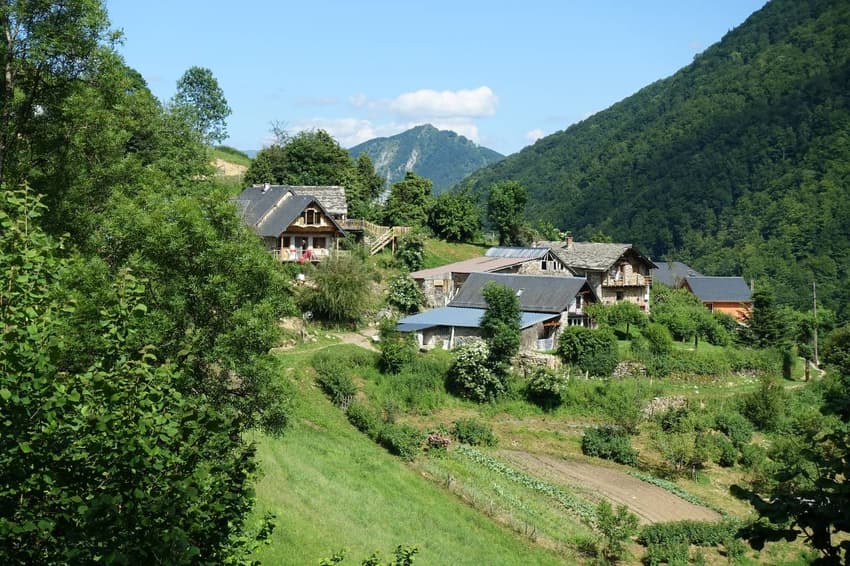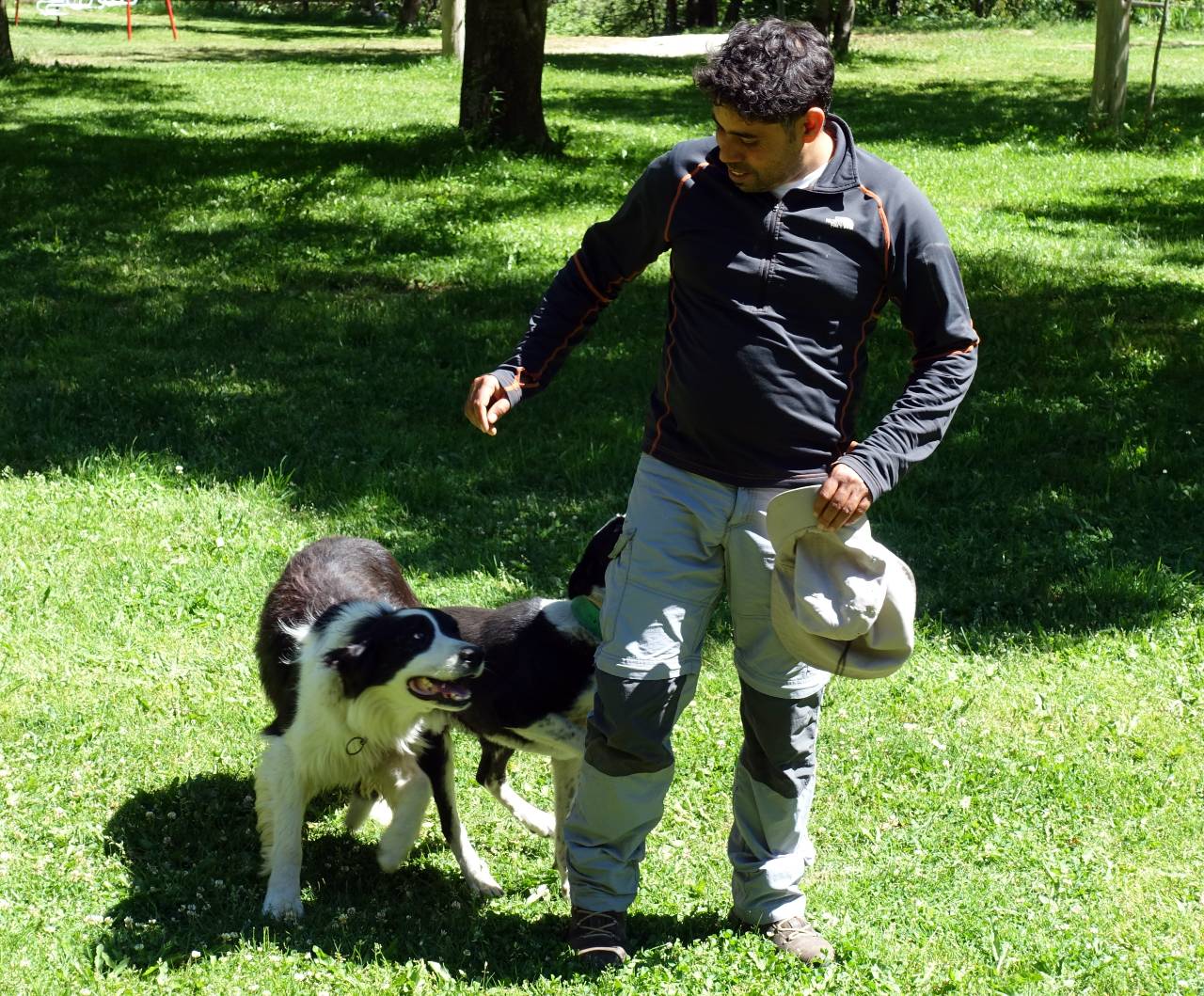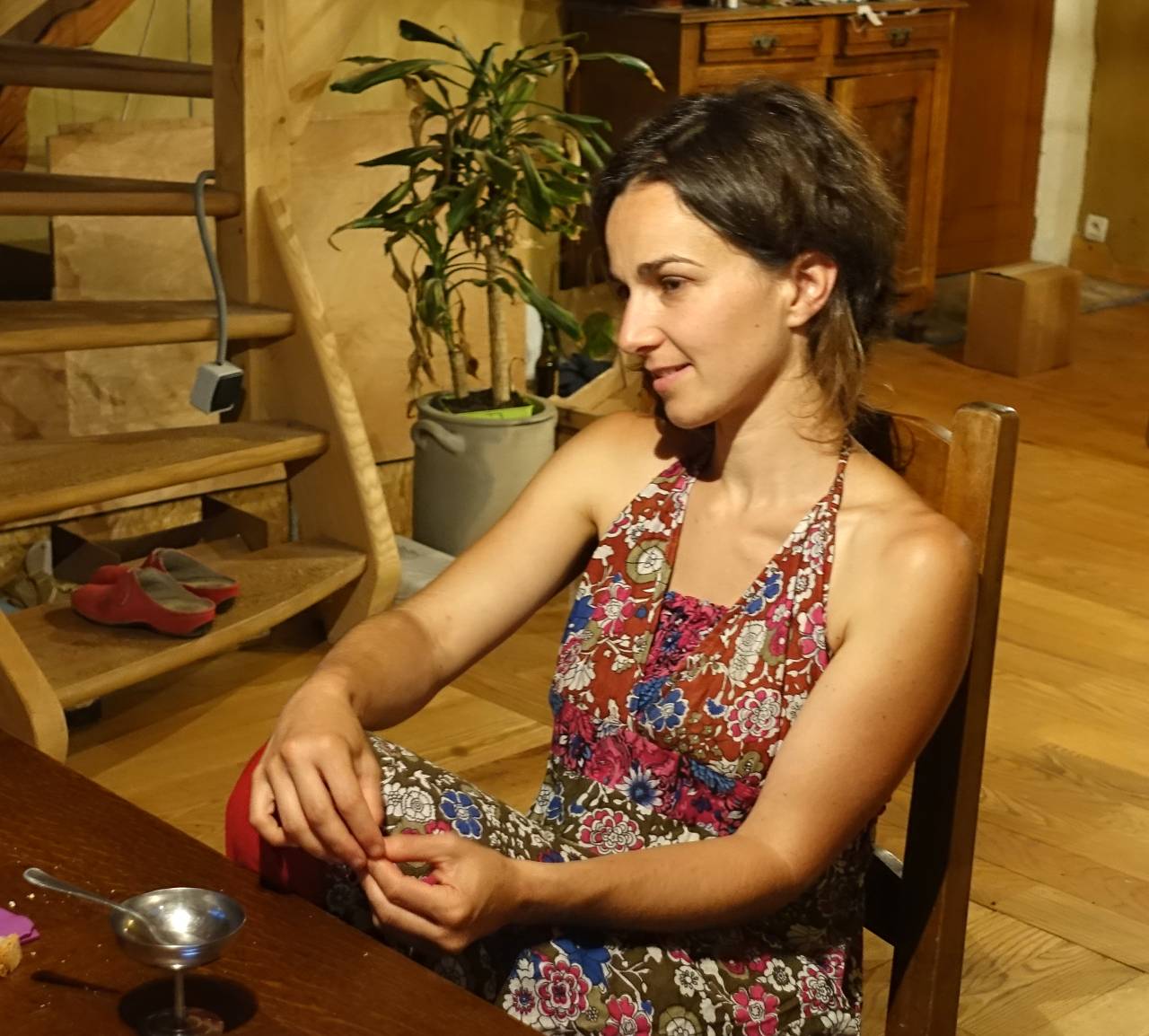'They treated me like a son' - The secrets of integrating in a Pyrenees community

They're popular with tourists for both their beauty and their wilderness - but what's it like to actually live in the Pyrenees? Author Stephen Cracknell spoke to residents on both the French and the Spanish side of the mountains about what brought them to the area and why they remain.
In the classic French novel Jean de Florette, the titular hero inherits a house in rural southern France and moves there, although an early misunderstanding convinces him that the locals have rejected him.
Jean believes he doesn’t need the village. He is strong and works hard – Gérard Depardieu played the role on screen – but finally he comes to grief because he hasn’t integrated.
Much has changed since 1963, but there are still areas where outsiders have had less influence on local life. Like the Pyrenees.
My friend, Open University professor Gordon Wilson, and I have been talking to residents there, in both France and Catalonia.
How do they live and what do they think of their neighbours? For anyone moving from a town to a rural area – and not just to the Pyrenees – what they say is worth listening to.
One outsider who has successfully integrated is Mustapha, from Morocco. He had the advantage of growing up on a farm in the Atlas Mountains so knew the kind of life awaiting him in the Pyrenees.
He was also determined: when he could not obtain a visa, he crossed to Spain in a dinghy. When he was confronted by his complete lack of Spanish and Catalan, he worked around the problem by talking Sheep. Within two days he found a job as a shepherd in Pallars Sobirà, Catalonia.
"What surprised me most was the good people," he said. "Very good people. Very welcoming. I was living in my bosses’ house. They treated me like a son."

Shepherd Mustafa with his dogs. Photo Stephen Cracknell
During his first summer in the high pastures, however, he had to live alone in a tent. When he brought the sheep back down in autumn, they had gained weight, but he had lost 14kg.
"One night I heard a lot of noise coming from the sheep. I was sleeping in the tent. The bear was eating a sheep fifty metres away. Eating the sheep. Argh! Well, I shut the tent up and that was it. I just let him eat it."
After three years he obtained his residence papers. He and his wife, Fatima, now have two children. All four of them speak Catalan, Spanish, Berber and Arabic.
Another person now living in the mountains is Adeline.
Before she moved to France's Ariège département, she only knew the Pyrenees through its footpaths.
Her mother was a nurse, her father a stonemason, she herself was a teacher. Then she fell in love with Mathias, a shepherd. Despite her origins in the south of France, moving to an isolated farm was a big leap for her.
“I decided to resign from teaching because I knew that it was no longer right for me. It was a bit like jumping off a cliff because I knew it would be difficult to earn my living.”
When she moved to Mathias’ farm, she took up management of the walkers’ hostel – which is how Gordon and I came to meet her. She grew food to feed the guests. Then, when there was a glut of fruit, she converted it into ice cream and sorbet. Now she runs the hostel, works the land, and sells produce, both fresh and frozen, on her market stall in St Girons.

Adeline now runs a walkers’ hostel at Esbintz in Ariège. Photo: Stephen Cracknell
“When I arrived, I was Mathias’ girlfriend… Now it’s the opposite effect. So, when Mathias comes on my stall, people say, ‘Oh you are the boyfriend of the girl who makes ice cream!’” Adeline has become part of the community.
But what to make of René? Unlike Mustapha and Adeline, René was born and bred in the Pyrenees, as was everyone in the family except for his Swiss wife.
He has always lived in Ariège. In my definition he is a local. But he told us: “We are foreigners”.
His grandfather, he explained, came from the Ebro delta in southern Catalonia, looking for work.
He walked across the Pyrenees, crossed the border into France and stopped at the first village. He married a woman who was living there. That was in 1920.
Yet René still feels he is an outsider despite his family roots in the area. His comments give a clue to his sense of detachment: “The locals, it’s simple. Here, it’s sheep, Saint-Girons it’s cows. Full stop. Forests? If they are a problem, they get burnt.”
Until his recent retirement, René was a school nurse: “What I see in the young locals in the sixth-form college in Foix, for example, for some, as soon as they go beyond Pamiers [20km north], it is worse than northern Europe. They’ve never been away.”
These four routes to the Pyrenees – by dinghy, by love, by walking, by birth – are as diverse as the people who followed them. As the poet Antonio Machado wrote: “Traveller, there is no path, the path is made by walking”.
Mountain People: Tales from the Pyrenees, by Gordon Wilson and Steve Cracknell, is published by Austin Macauley (London). Also published by Stephen Cracknell: The Implausible Rewilding of the Pyrenees, Lulu, 2021
Comments
See Also
In the classic French novel Jean de Florette, the titular hero inherits a house in rural southern France and moves there, although an early misunderstanding convinces him that the locals have rejected him.
Jean believes he doesn’t need the village. He is strong and works hard – Gérard Depardieu played the role on screen – but finally he comes to grief because he hasn’t integrated.
Much has changed since 1963, but there are still areas where outsiders have had less influence on local life. Like the Pyrenees.
My friend, Open University professor Gordon Wilson, and I have been talking to residents there, in both France and Catalonia.
How do they live and what do they think of their neighbours? For anyone moving from a town to a rural area – and not just to the Pyrenees – what they say is worth listening to.
One outsider who has successfully integrated is Mustapha, from Morocco. He had the advantage of growing up on a farm in the Atlas Mountains so knew the kind of life awaiting him in the Pyrenees.
He was also determined: when he could not obtain a visa, he crossed to Spain in a dinghy. When he was confronted by his complete lack of Spanish and Catalan, he worked around the problem by talking Sheep. Within two days he found a job as a shepherd in Pallars Sobirà, Catalonia.
"What surprised me most was the good people," he said. "Very good people. Very welcoming. I was living in my bosses’ house. They treated me like a son."

During his first summer in the high pastures, however, he had to live alone in a tent. When he brought the sheep back down in autumn, they had gained weight, but he had lost 14kg.
"One night I heard a lot of noise coming from the sheep. I was sleeping in the tent. The bear was eating a sheep fifty metres away. Eating the sheep. Argh! Well, I shut the tent up and that was it. I just let him eat it."
After three years he obtained his residence papers. He and his wife, Fatima, now have two children. All four of them speak Catalan, Spanish, Berber and Arabic.
Another person now living in the mountains is Adeline.
Before she moved to France's Ariège département, she only knew the Pyrenees through its footpaths.
Her mother was a nurse, her father a stonemason, she herself was a teacher. Then she fell in love with Mathias, a shepherd. Despite her origins in the south of France, moving to an isolated farm was a big leap for her.
“I decided to resign from teaching because I knew that it was no longer right for me. It was a bit like jumping off a cliff because I knew it would be difficult to earn my living.”
When she moved to Mathias’ farm, she took up management of the walkers’ hostel – which is how Gordon and I came to meet her. She grew food to feed the guests. Then, when there was a glut of fruit, she converted it into ice cream and sorbet. Now she runs the hostel, works the land, and sells produce, both fresh and frozen, on her market stall in St Girons.

“When I arrived, I was Mathias’ girlfriend… Now it’s the opposite effect. So, when Mathias comes on my stall, people say, ‘Oh you are the boyfriend of the girl who makes ice cream!’” Adeline has become part of the community.
But what to make of René? Unlike Mustapha and Adeline, René was born and bred in the Pyrenees, as was everyone in the family except for his Swiss wife.
He has always lived in Ariège. In my definition he is a local. But he told us: “We are foreigners”.
His grandfather, he explained, came from the Ebro delta in southern Catalonia, looking for work.
He walked across the Pyrenees, crossed the border into France and stopped at the first village. He married a woman who was living there. That was in 1920.
Yet René still feels he is an outsider despite his family roots in the area. His comments give a clue to his sense of detachment: “The locals, it’s simple. Here, it’s sheep, Saint-Girons it’s cows. Full stop. Forests? If they are a problem, they get burnt.”
Until his recent retirement, René was a school nurse: “What I see in the young locals in the sixth-form college in Foix, for example, for some, as soon as they go beyond Pamiers [20km north], it is worse than northern Europe. They’ve never been away.”
These four routes to the Pyrenees – by dinghy, by love, by walking, by birth – are as diverse as the people who followed them. As the poet Antonio Machado wrote: “Traveller, there is no path, the path is made by walking”.
Mountain People: Tales from the Pyrenees, by Gordon Wilson and Steve Cracknell, is published by Austin Macauley (London). Also published by Stephen Cracknell: The Implausible Rewilding of the Pyrenees, Lulu, 2021
Join the conversation in our comments section below. Share your own views and experience and if you have a question or suggestion for our journalists then email us at [email protected].
Please keep comments civil, constructive and on topic – and make sure to read our terms of use before getting involved.
Please log in here to leave a comment.